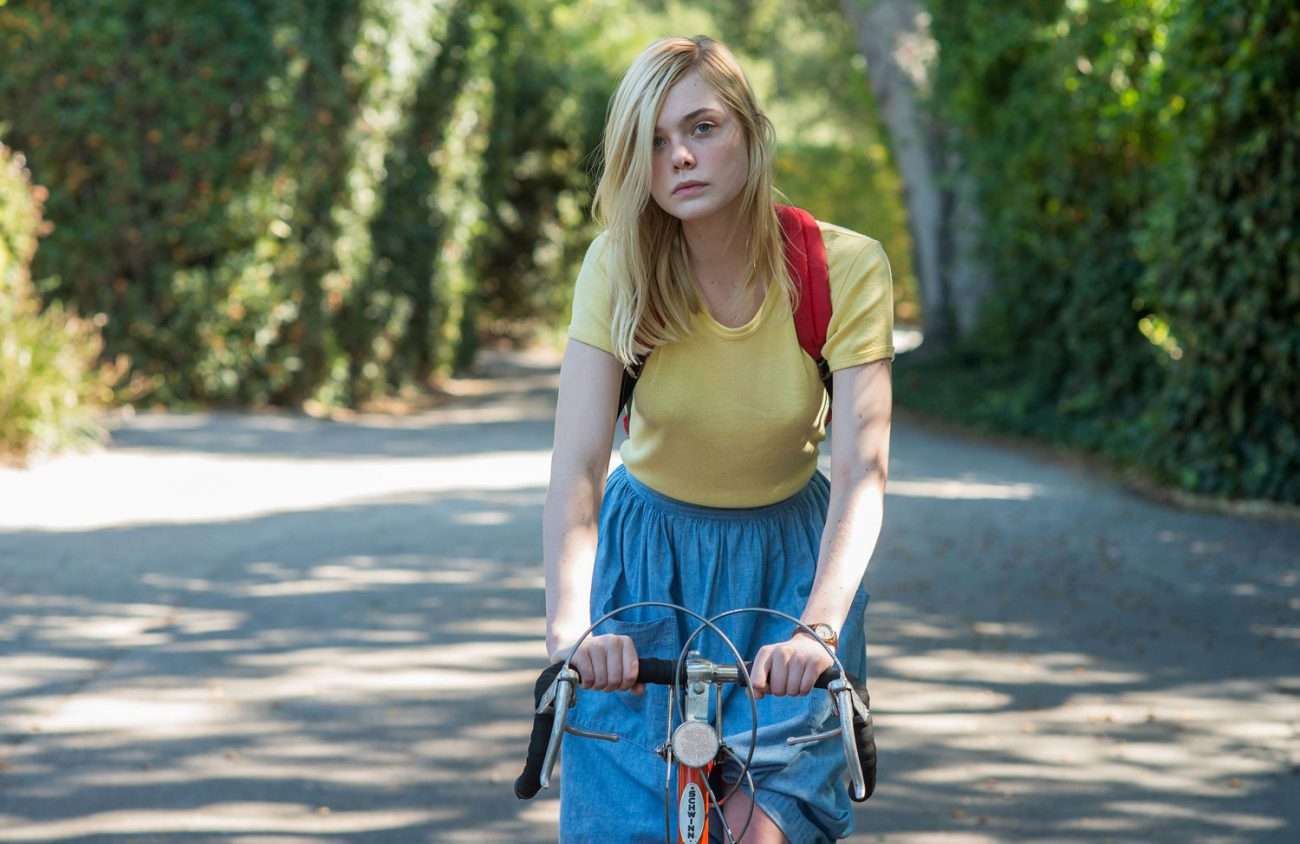Oddly enough, it was a misguided defense of Elle that made me come around — to some degree — to Paul Verhoeven’s latest Rorschach test of a film. A tireless provocateur, Verhoeven (Starship Troopers, Showgirls) can also be tiresome, and Elle is a bit of both sides.
The litany of horrors that befall Michèle (a brilliant, fearsome Isabelle Huppert) in this film include: violent rape; the alien rape of a video game character wearing her face; being blamed for murders committed by her father; her ex-husband hitting her (offscreen, in the past); and a car crash. (I may have left something out.)
Efficient and apparently tireless, Michèle can be cruel, callous, vindictive and selfish. We could point to her murderous father and self-obsessed mother (understandable, arguably, given her husband) as justification for her eerily calm response to everything. How could she be “normal,” growing up like that?
But the piece that changed my mind about Elle took such characterization a step farther, opting to argue that Michèle is not just damaged but a sociopath.
Isn’t all of this too easy? Using trauma to define a character is lazy and clichéd shorthand; using atypical actions to label her a sociopath is just a bigger leap. And all of this is exactly what Verhoeven’s poking at: the temptation to explain who a person is, and why, to pretend we can possibly understand that person based on the things that happen to her. Are you just the sum of what’s happened to you?
I wouldn’t want to hang out with Michèle, and to say I’m uncertain about her response to her assailant would be a considerable understatement. But at the application of the sociopath label, I wanted to rise in her defense — or in the defense of all women, especially those of a certain age, who do not behave as expected, who don’t run about coddling the feelings of the men in their lives.
Calculating, precise, tactless, brutally honest, Michèle is categorically unwilling to be a victim, and so Elle goes in unexpected, uncomfortable directions. There’s not a man in Elle who doesn’t act directly against the interests of a woman — yet she’s the one at whom we look askance. Somewhere in the heaping pile of trauma, in Huppert’s raised eyebrow, is a dig at narrative norms and character expectations, a vicious twist on who we expect people to be.
Would a revenge fantasy have been more satisfying? Absolutely. But that’s not what Verhoeven is here for. Elle is flawed and brutal, occasionally glorying in shock more than smarts — but Huppert’s Michèle deserves a place in film’s pantheon of anti-heroines. And if there isn’t such a pantheon, it’s about time to create it.
On the flip side of men-making-movies-about-women is Mike Mills’ loving, beautiful Twentieth Century Women. In gray curls and very little makeup, Annette Bening stars as Dorothea Fields, an older mother raising her son, Jamie (Lucas Jade Zumann), in a rambling renovation-project of a house in Santa Barbara.
At 15, Jamie is starting to stretch away from his single mother, whose attempts to put a man in his life work out better for her than for her son. (Billy Crudup, in a bushy mustache, is perfection as the slightly dopey sculptor/mechanic/man-about-the-house.)
But does it take a man to raise a man? The answer, in Mills’ primary-color saturated 1970s dream, is a solid no: Dorothea enlists her other boarder, twentysomething Abby (a radiant Greta Gerwig), and Jamie’s 17-year-old friend Julie (Elle Fanning) to help Jamie — and his mother — navigate the fraught early teen years.
But Twentieth Century Women isn’t just about Jamie (the title probably gives that away). Each woman gets her portrait painted in the course of the film, from youth to adulthood, and Mills is generous and unjudging in these scenes. He tells as well as shows, and the effect is that of a mini biography — a character sketch of the work in progress that people usually are.
Fanning, with her sullen face, sparks into earnestness at an awkward dinner party; Gerwig flails in a dark club, dragging Jamie out into a world his mother doesn’t understand yet gamely explores. Dorothea is confused but sincere when she asks what Black Flag is singing about.
Twentieth Century Women contains what is possibly my favorite exchange in recent film (a question that’s answered with the words “clitoral stimulation”). But clever teen replies aside, Mills’ film is deeply honest about people and the places where they hide. After Jamie gets deep into some feminist texts he tries to understand his mother — who pulls back, not sure she wants this knowing to go both ways.
Characters swirl, overlap, grow together and slip apart, and nothing built in this narrative lasts forever. Though every character comes into a certain degree of focus, Mills isn’t here to sum people up, but to show them in motion. Twentieth Century Women is a film about how we know people and how we grow alongside them, in their shadows, at least for a while. (Elle is at Broadway Metro, Twentieth Century Women is at Bijou Art Cinemas)
